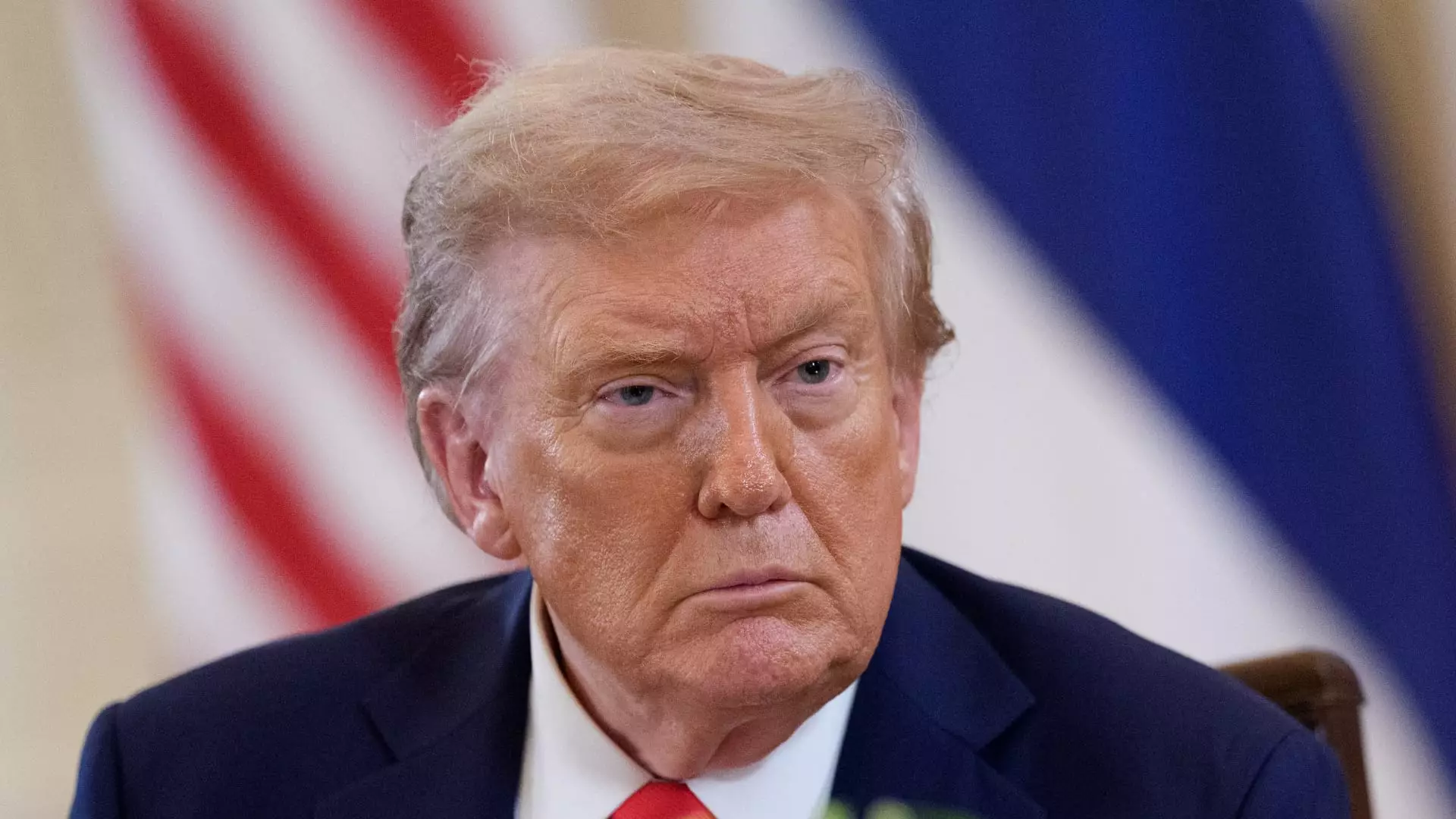In a political landscape increasingly marred by conflicts of interest, Donald Trump’s recent bond acquisitions cast a long and troubling shadow over the integrity of the presidency. Since assuming office, Trump has engaged in a series of complex financial transactions, purchasing hundreds of millions of dollars’ worth of bonds issued by local governments, utility districts, and major corporations. These aren’t mere investments by a private citizen but appear to occur under the guise of the highest public office, raising serious questions about the potential for undue influence and the blurring of lines between power and profit.
While the official reports list over 690 transactions totaling a minimum of $100 million, the true scope could be far larger. Such extensive financial dealings during a period of political leadership are inherently problematic. They threaten to undermine public trust, especially when caching in on bonds issued by entities that are potentially impacted by presidential policies—cloaking personal financial interest behind patriotic duty. The fact that Trump has bought significant stakes in companies like Facebook, UnitedHealth, and Home Depot—notoriously intertwined with various facets of American life—gives weight to concerns of a president whose financial interests align disturbingly closely with his political decisions.
The Power of Wealth: A President’s Financial Footprint
Trump’s notable net worth, estimated at over $5.5 billion, paints a picture of a man whose financial empire is intertwined with the very institutions he now influences politically. His prior to and during presidency, his wealth ballooned amidst accusations that his ventures exploit his political platform—an automatic conflict of interest in a system meant to prevent capital from wielding undue influence over governance.
What makes this situation even more problematic is the exemption granted to presidents under federal law—failing to require divestment unlike their predecessors. This legal gap allows Trump to carry significant financial interests in entities that could benefit from or be impacted by his policy decisions. When the president’s investments include bonds issued by local governments and corporations that are subject to his administration’s regulations, the line between personal gain and official duty becomes dangerously blurred.
Implications for Democracy and Public Trust
These transactions raise profound concerns about the health of American democracy. At a fundamental level, a president engaged in extensive bond investments while in office creates a fertile ground for conflicts of interest—whether consciously or subconsciously. The risk is not just potential bias in policy decisions but also the erosion of the public’s confidence in the fairness of governance.
Moreover, the opaque nature of these transactions—since the law only mandates reporting “reportable transactions” with no strict limits on their value—means citizens are left in the dark about the full scope of presidential financial entanglements. Such opacity fuels suspicion and undermines transparency. In a democracy, transparency isn’t merely a virtue; it’s a prerequisite for legitimacy.
The Reality of Influence: Who Really Benefits?
The core danger lies in the possibility that Trump’s bond portfolio could shape public policy in ways that favor his financial interests—whether directly or indirectly. Buying bonds issued by water supply districts, hospital authorities, or even government entities indicates an intimate familiarity and potential influence over local infrastructure projects, public health initiatives, and regional development plans.
If policies or regulations shift in ways that enhance the value of his holdings, it would be a betrayal of public trust and an example of how wealth can wield disproportionate influence even in the highest office. This intersection of wealth and power—further amplified by the lack of legal barriers to divestment—presents a dangerous precedent, tilting the scales of American governance toward the wealthy elite under the guise of patriotic service.
Challenging the Status Quo: Moving Toward Transparency and Accountability
The current situation underscores the urgent need for reforms that penalize conflicts of interest and extend transparency beyond minimal legal requirements. An honest democracy should mandate comprehensive disclosure, prevent elected officials from holding significant financial interests during their terms, and sharply limit the scope of permissible transactions.
Pending such reforms, the American public must critically scrutinize figures like Trump—whose financial dealings, cloaked behind a veneer of business acumen, threaten to undermine the very foundations of fair governance. The stakes aren’t merely about personal wealth but about the integrity of democracy itself, which is increasingly fragile amid the unreined pursuits of wealth by those in power.


Leave a Reply